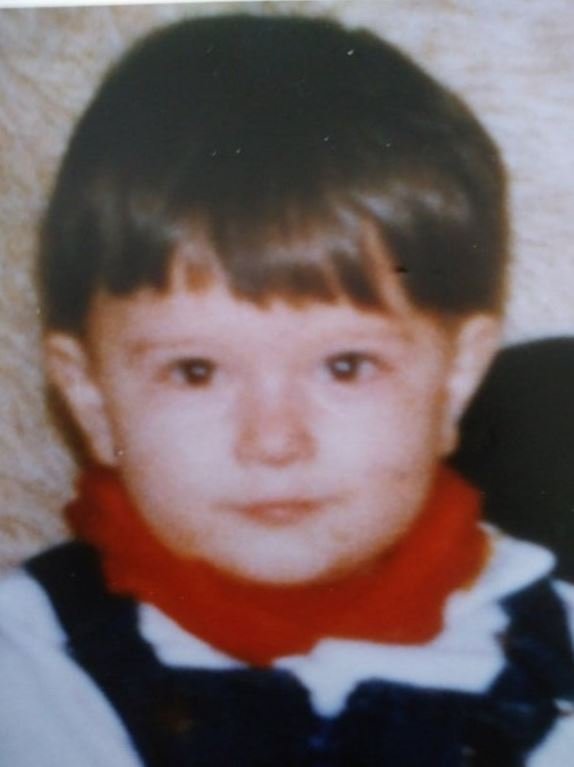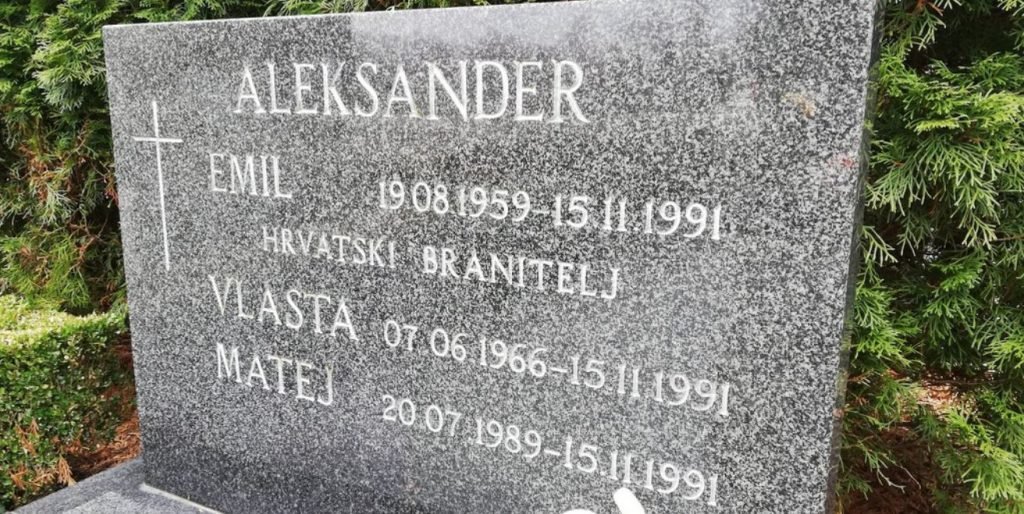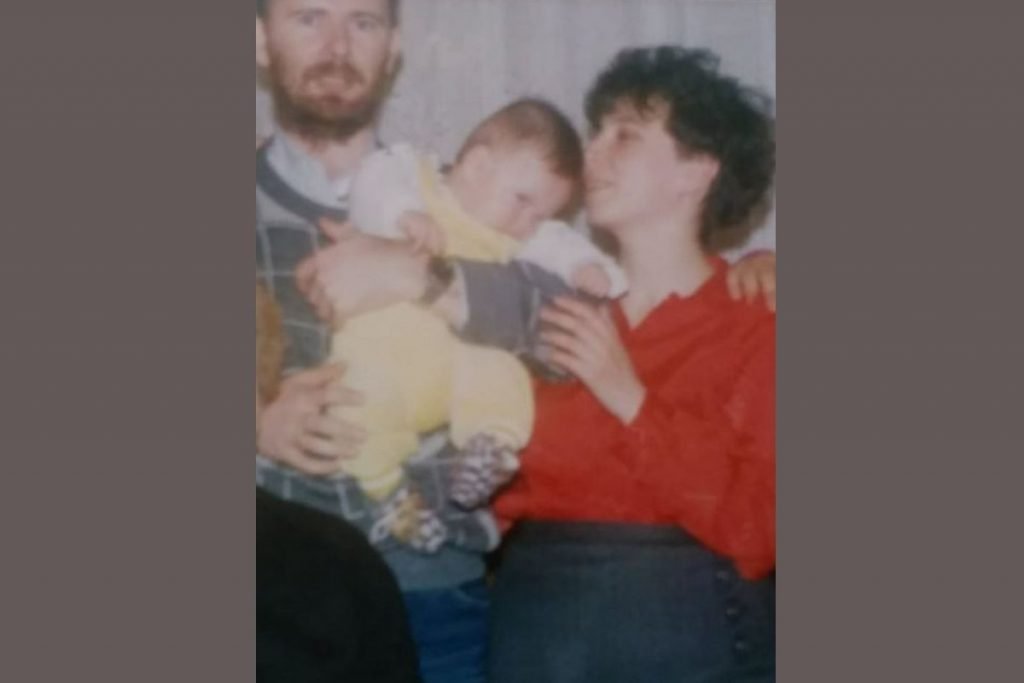As Vukovar breathed it final breaths a few days before the city fell, several shells struck a civilian shelter in the basement of the already destroyed Eltz Castle. Several dozen people sought refuge in the basement, known as the Vučedol Drop and did not escape the danger as eleven people were killed, including the Aleksander family.
I was sitting in the room when I heard someone screaming, ‘People… help!‘ and then heard someone fall down the stairs. I ran to the hallway where I found some people already trying to help Emil who lay in a pool of blood. Someone then shouted, ‘A bomb fell on other shelter’ and a group of men ran out to help them. They tried to calm Emil down and ten minutes later paramedics arrived and carried him out on a stretcher. Those who had just run out to assist the people in the other shelter returned sombre and in shock. A tank shell pierced the ruins above the shelter and exploded. A dozen people were dead or wounded, among which were Emil’s child, wife and her mother. That same night, Emil died in the hospital. Just like that, a single grenade wiped an entire family off the face of the earth.
Alenka Mirković-Nađ, journalist, Croatian Radio Vukovar
Emil Aleksander was born on 19 August 1959 and worked at Osijek Telecom before the war. He was talented in music and sports, playing trumpet and trombone for the Vukovar Voluntary Fire Brigade Brass Band and rowing for the Vukovar Rowing Club. He was married to Vlasta (nee Genčić) from Osijek who worked as a physiotherapist at the Vukovar Hospital and their son Matej was born on 20 July 1989. When the war began, Vlasta and Matej took refuge in the aforementioned Vučedol Drop shelter in the center of the city.

One basement was used by civilians while the other was used by the 204th Vukovar Brigade, of which Emil Aleksander was a member. He maintained the equipment that allowed the hospital to communicate with Zagreb during the Battle of Vukovar. During one break, Aleksander left for a nearby shelter to meet his family for lunch when it was hit by deadly shelling. Badly wounded, he managed to find the strength to call for help but it was too late for his son, wife and her mother who were also in the basement.
Little Matej became my dearest friend in that basement where we suffered, that dark basement that echoed with our smiles, in that evil where we still saw only good, not really grasping what was happening outside. That day we played as we did every day and then the worst happened … The last image in my memory is in the van where Matej and I were placed opposite each other… where I looked upon at him so bloody and wounded. His eyes were open but he didn’t move so I thought that he was simply scared… then I turned to him and said ‘Matej, your shoelace is undone’ and that I could I tie it for him. The medical staff transporting us looked at me sorrowfully and I immediately did not realize why, that they watched me address my little friend who is no more… Matej’s father Emil saved us by calling out for help even though he himself was badly wounded. That day I lost a friend, my grandmother and experienced something that nobody let alone a child should experience…
Sanela Vidić Križić, witness
This terrible tragedy took on an added dimension when Serbian propaganda portrayed the body of little Matej, wrapped in a green hospital sheet, as a Serbian victim killed by Vukovar’s defenders and the Croatian National Guard (CNG) in the Serbian daily “Politika Express”. Little Matej Aleksander was not the only victim of Greater Serbia aggression that depicted in such a manner. Following the peaceful reintegration of the Croatian Danube region, his body was exhumed at the New Cemetery while his parents were found at the other end of the mass grave. Today, the entire family rests together in Vukovar at the Memorial Cemetery for the Victims of the Homeland War.

Sources
Literature
Galović, Ani. Mama ne vidim nebo. Bizovac: Ogranak Matice hrvatske u Bizovcu, 2020
Mirković, Alenka. 91,6 MHz – glasom protiv topova. Zagreb: Algoritam, 1997
Internet
Branimir Bradarić: „Oca, majku i dvogodišnje dijete u skloništu ubila ista granata“, Večernji list, access achieved November 10, 2020, https://www.vecernji.hr/vijesti/oca-majku-i-dvogodisnje-dijete-u-sklonistu-ubila-ista-granata-347307
Tomislav Mamić: „MARIJANA I SANELA: MI SMO DJECA RATNE VUKOVARSKE BOLNICE Dvije djevojčice susreću se na istom mjestu 26 godina poslije“, Jutarnji list, access achieved November 10, 2020, https://www.jutarnji.hr/life/zivotne-price/marijana-i-sanela-mi-smo-djeca-ratne-vukovarske-bolnice-dvije-djevojcice-susrecu-se-na-istom-mjestu-26-godina-poslije-6757719
Magistar sam povijesti. Radno iskustvo stjecao sam u Hrvatskom povijesnom muzeju i na Hrvatskoj radioteleviziji u emisiji TV Kalendar. Autor sam nekoliko knjiga i filmova na temu Domovinskog rata. Osnovao sam i uređujem Facebook stranicu Dogodilo se na današnji dan – Domovinski rat i portal Domovinskirat.hr. Također uređujem i vodim emisiju Domoljubne minute koja se svakog dana emitira na Hrvatskom katoličkom radiju te emisiju Sve za Hrvatsku i Novi valovi dobrote. Vlasnik sam obrta CroHis kojim promičem vrijednosti Domovinskog rata.

